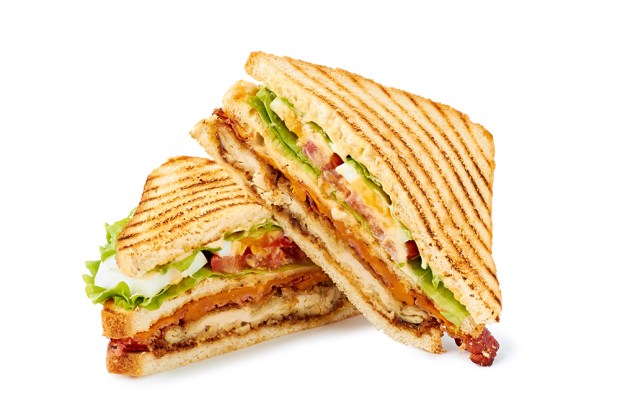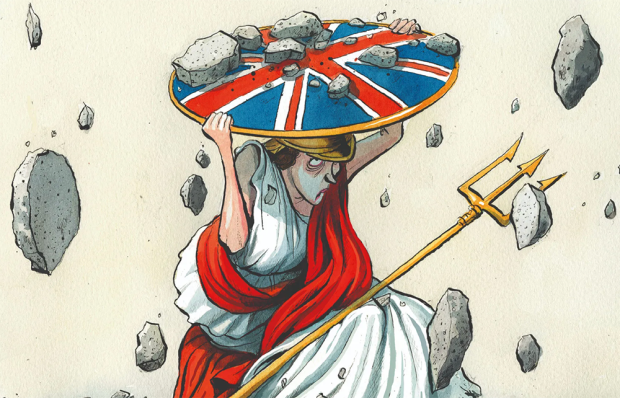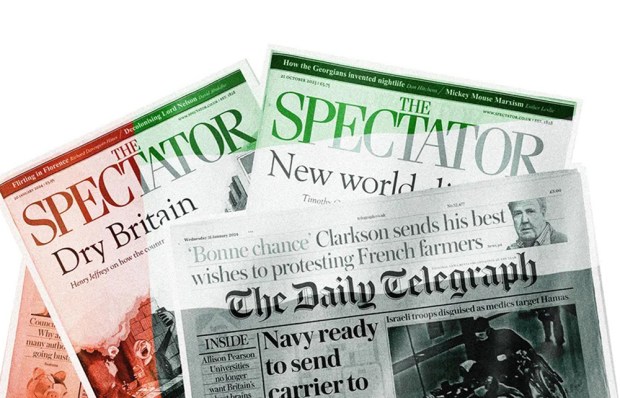The past week has seen another media splash about the self-exiled Duke and Duchess of Sussex. Following the recent ruckus over the statue of Princess Diana, the latest crisis to come off the royal conveyor belt was news that the Duke has written what his publishers sedately describe as a ‘literary memoir’. Cue general outrage. I was duly put to work by a weekend newspaper on an article that was expected to follow the anti-Harry orthodoxy but somehow it wandered off course. None of us has all the facts about why he and his family have moved to California, yet that hasn’t stopped pro- and anti-Sussex camps mobilising with a fervour more appropriate to a medieval war of religion. Having worked for eight years for another royal dissenter, I know caution is required when deciding who should be sanctified and who burned at the stake. For what it’s worth, I reckon there’s plenty of blame to go round, although I can see the easy appeal of shunting most of it on to the heretic who scarpered. Others see cruelty and even racism among the mortal sins committed by the House of Windsor against the novice Duchess from the city of angels. Let us hope a religion that puts a premium on forgiveness comes out on top.
The Prince has modestly set aside the Eton English skills expensively purchased for him by his father in favour of a kickass American ghostwriter. Given the raw material available in Harry’s head and the quality of sensation the publishers will expect for their reported millions, maybe we can look forward to ass-kickings on every page. The situation isn’t helped by both sides arming themselves to the teeth with spin doctors and social media cheerleaders. Long ago I concluded that the best way of handling royal PR would be to replace all the palace press officers with one slightly deaf octogenarian armed with a crackly phone line and lots of knitting. The result could hardly be any worse.
My own brush with a royal literary crisis came in 1992 — the Queen’s unhappy annus horribilis — when Harry’s mother practically dictated her rather selective laundry list of dirty linen, which became Andrew Morton’s bestselling Diana: Her True Story. Although I was her private secretary, she very considerately kept me in the dark about the stealthy process of getting it written, but I was involved in dealing with the fallout. Poor little Harry was just seven at the time so it will be interesting to see how reliable his recall might be of the traumatic events that became known as ‘the war of the Waleses’.
On a lighter note, I recently described Harry and Meghan’s very vigilant social media supporters, aka the Sussex Squad, as a Praetorian Guard. The Squad has latched on to this enthusiastically, with some members now identifying themselves on Twitter as ‘Praetorian’ and adding their identifying number. I don’t know if this raises me to the status of social media influencer, but I wish they’d at least use Roman numerals.
That would have pleased my very old-school history master back at my Edinburgh alma mater. His world and that of the Sussex Squad Praetorians are about as far apart as Julius Caesar and Jay-Z. They occupy different solar systems of thought, values and knowledge. There must be many of my generation, whose parents fought in the second world war, who struggle to comprehend how our lives accommodate such jarring contrasts. It’s undeniably a privilege, but one that requires daily mental gymnastics. Perhaps the Queen feels the same as she Zooms with her great-grandchildren in Montecito.
The celebrations for Her Majesty’s Platinum Jubilee next year are a welcome reminder that monarchy operates to a reassuringly distant time horizon. My history master was perhaps trying to teach me and my pimply, slouching classmates something of this wisdom when he declared: ‘History stopped in 1901. Everything since is just current affairs!’ Eventually it dawned on us that 1901 was when Queen Victoria died. Now another glorious royal era is in its golden twilight. Let’s pray it’s a long one, because the passing of the current reign will mark a moment when, once again, history itself will come to a stop.
Of course, Covid has given us a taste of what history stopping might feel like. Now there’s an undeniable sense that life is returning to some kind of normal. Yesterday, turning my gaze to the heavens, I spotted the best sign of recovery yet. Yes! There it was! A giant Airbus A380 airliner, climbing majestically into the blue Virginia sky. A rare bird for more than a year, its return is surely a sign that happy days — and endless airport queues — are here again.
Got something to add? Join the discussion and comment below.
Get 10 issues for just $10
Subscribe to The Spectator Australia today for the next 10 magazine issues, plus full online access, for just $10.
You might disagree with half of it, but you’ll enjoy reading all of it. Try your first month for free, then just $2 a week for the remainder of your first year.














Comments
Don't miss out
Join the conversation with other Spectator Australia readers. Subscribe to leave a comment.
SUBSCRIBEAlready a subscriber? Log in